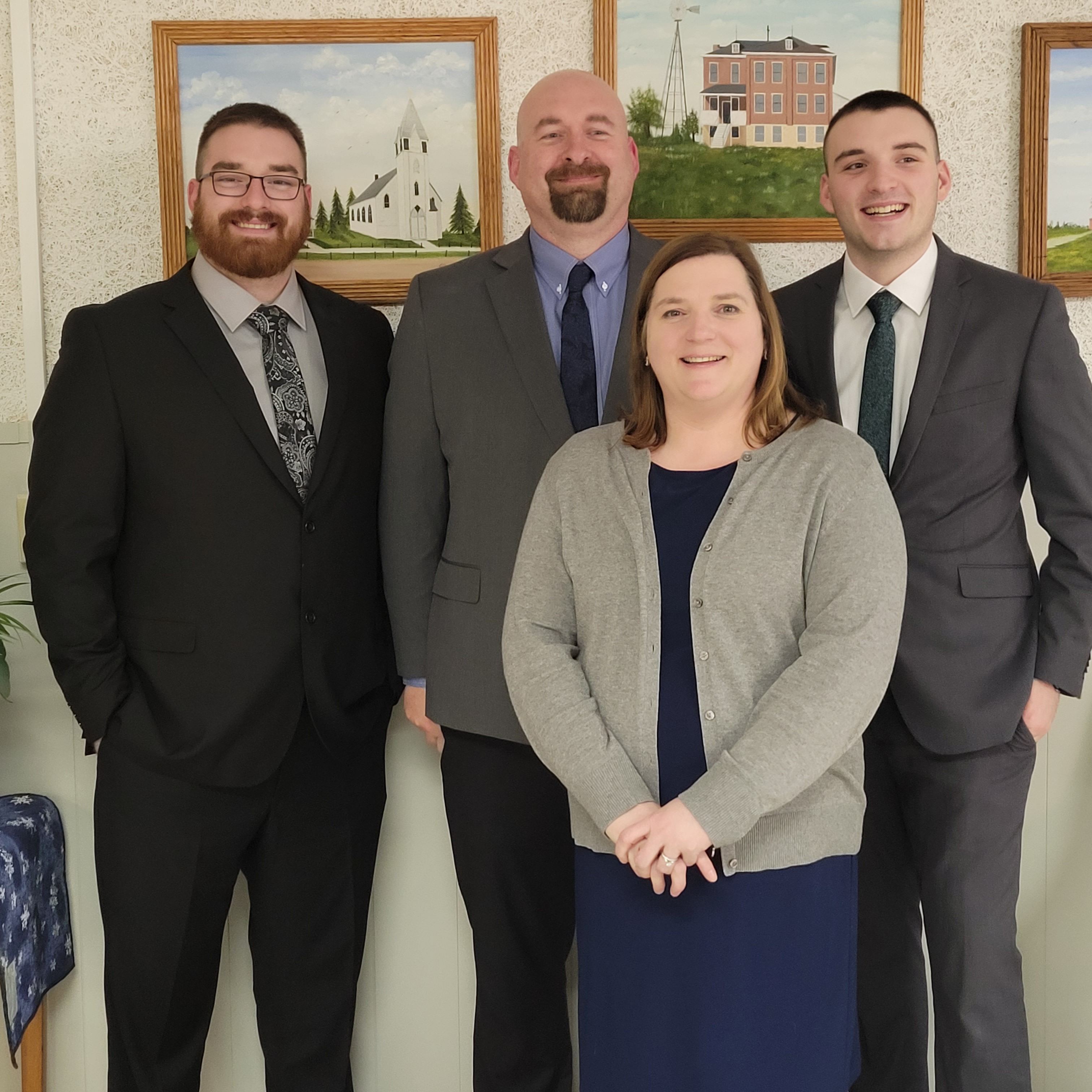
By Sarah Rosenberg, UNL sophomore in journalism | Center for Science, Mathematics and Computer Education
Michaela Goracke accepted the offer to be principal of Doniphan-Trumbull Jr/Sr High School four days before schools shut down in 2020 due to the COVID-19 pandemic.
“It was a crazy weird first year as an administrator!” added Goracke, who has spent the first two years at Doniphan-Trumbull creating more Career and Technical Education experiences for the students, including an internship program.
“I love that my vision of getting kids out of the building to give them opportunities to see what kinds of careers are out there has come to fruition,” Goracke said. “I enjoy working with teachers and helping them grow professionally and seeing their classroom goals accomplished as well.”
The Lincoln native and Math in the Middle alumna was a classroom teacher for 17 years and an instructional coach for two years at Hastings Middle School before becoming a principal. As a math teacher, she gained skills in how to effectively help students grasp curriculum.
“As a student, math did not come easy for me. So, as a math teacher, I wanted to be able to teach it in a way that I would have benefited from when I was a kid,” Goracke said.
After participating in NSF Cohort 4 of Math in the Middle, a UNL graduate program that leads to a master’s degree, Goracke said she became a better, more well-rounded teacher. Her math background also has come in handy when working on budgets.
“Math in the Middle not only taught me theory of math instruction but also gave me the knowledge to build lessons that focused on the understanding of math, not just the ‘doing’ of math,” Goracke said. “The math and pedagogy classes gave me the background knowledge that helped build my confidence as a math teacher and later as an instructional coach. Focus on taking classes that help build the ‘why’ of math and not just the ‘how.’ Those are the classes that are going to benefit the most students.”
Goracke said she transitioned into the role of an instructional coach because she wanted to work with teachers and help them refine their skills. After two years in that role, Goracke was drawn to be involved with teachers on a larger scale, as an administrator.
Although Goracke is no longer teaching students, her takeaways from Math in the Middle stick with her.
“Being a highly qualified teacher in all of the content areas helps me feel credible when looking at Standards and helping teachers prioritize, but the program also taught me what good math instruction looks like and how to coach my teachers toward that ideal,” Goracke said.
She also was able to build a strong network of teachers and administrators through the program. She often communicates with her former classmates to gather ideas and advice.
“I have reached out to several of my classmates about potential hires who have taught in the districts they are in, and I have also reached out about what resources their districts are using,” Goracke said. “The coolest thing is that the son of one of my classmates is a teacher in my building—he was hired the summer that I started!”
Goracke looks back fondly on her time in Math in the Middle and encourages other teachers to participate in the program.
“My cohort had some incredible personalities, and we had a lot of fun learning math together,” Goracke said. “Looking back at all of the things that I have participated in over the course of my life, Math in the Middle, by far, has had the greatest impact on me professionally and personally. I will forever be grateful for the lessons taught (and learned) and not just the ones involving mathematics.”